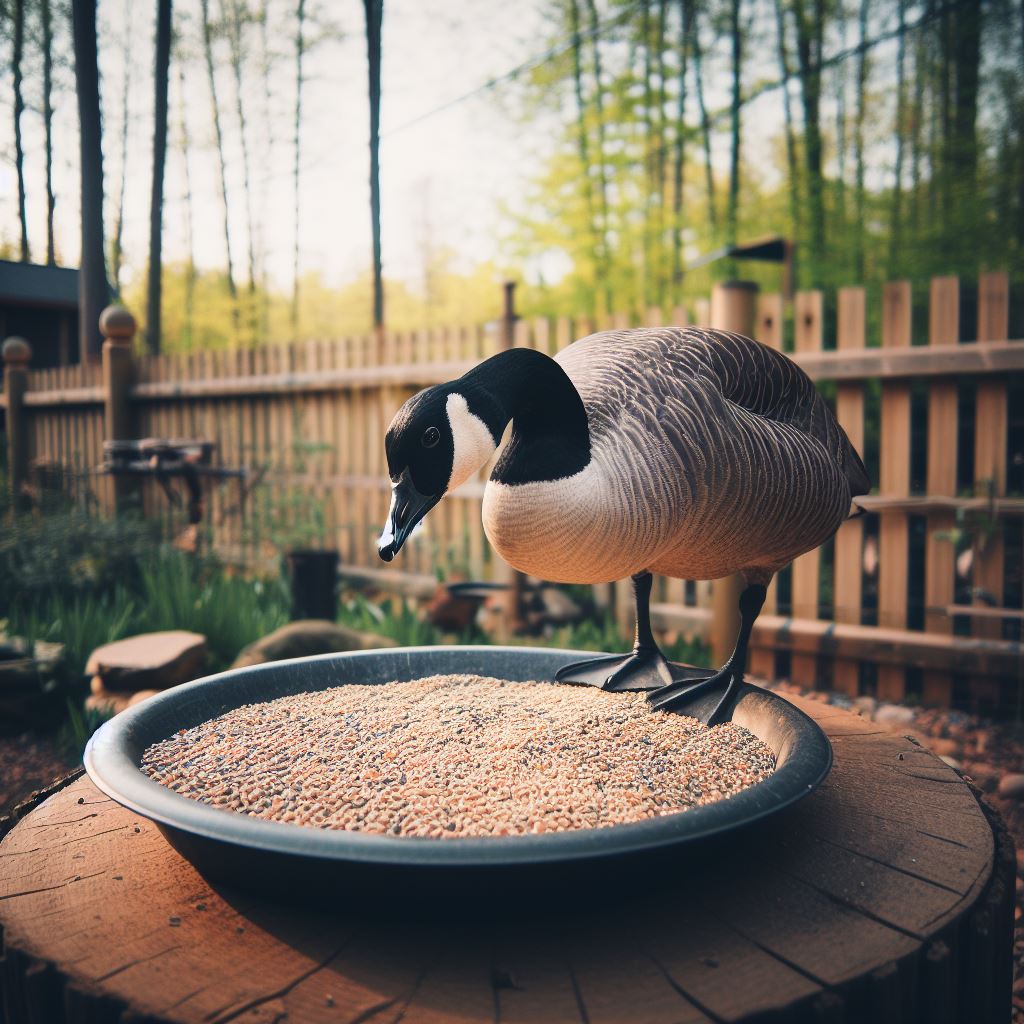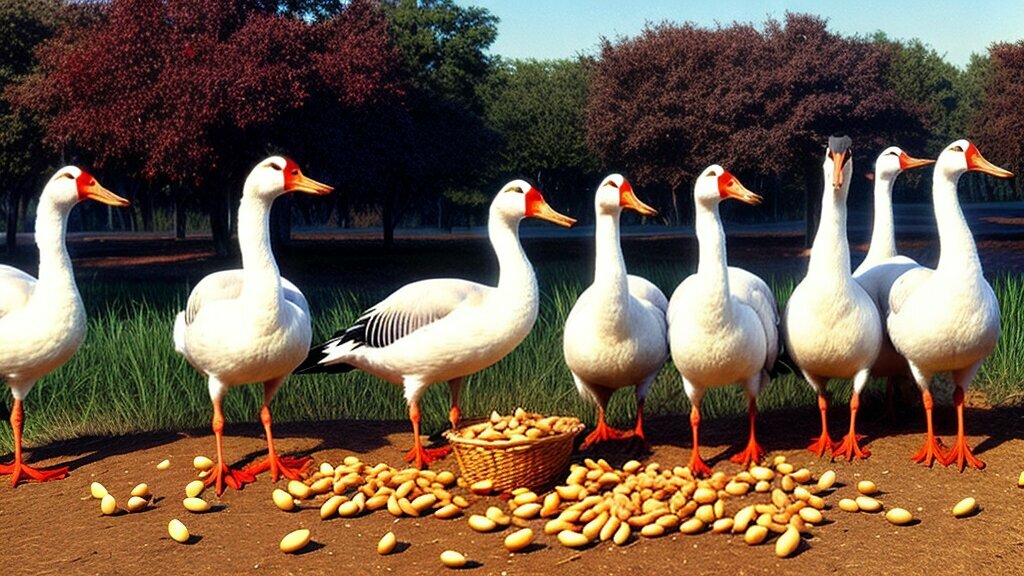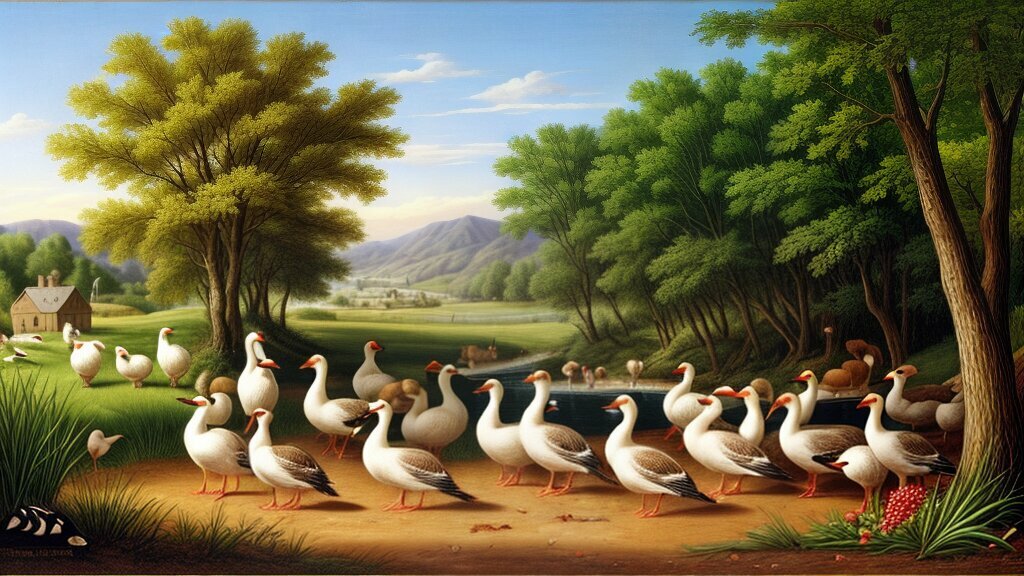Can Geese Eat Chocolate?
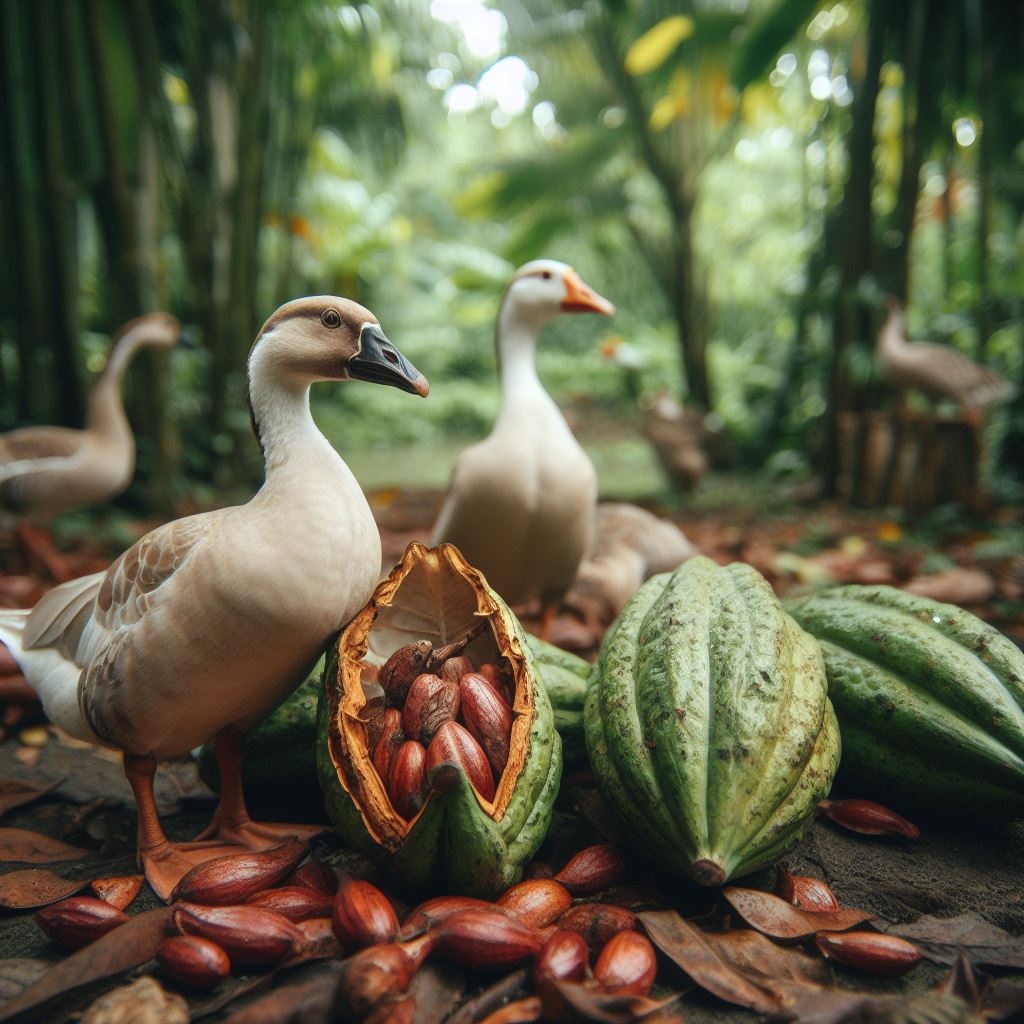
Table of content:
The answer is no – chocolate should never be fed to geese due to the toxicity risk from theobromine. Consuming chocolate can make geese very sick.
Chocolate is a tempting treat that most of us enjoy indulging in. As a goose owner, you may be curious if you can share a bit of chocolate with your feathered friend. However, chocolate contains ingredients that can be harmful to birds like geese.
This article will provide goose owners with a comprehensive guide on whether geese can eat chocolate, the effects of chocolate on geese, what to do if your goose accidentally eats chocolate, and other human foods to avoid feeding geese.
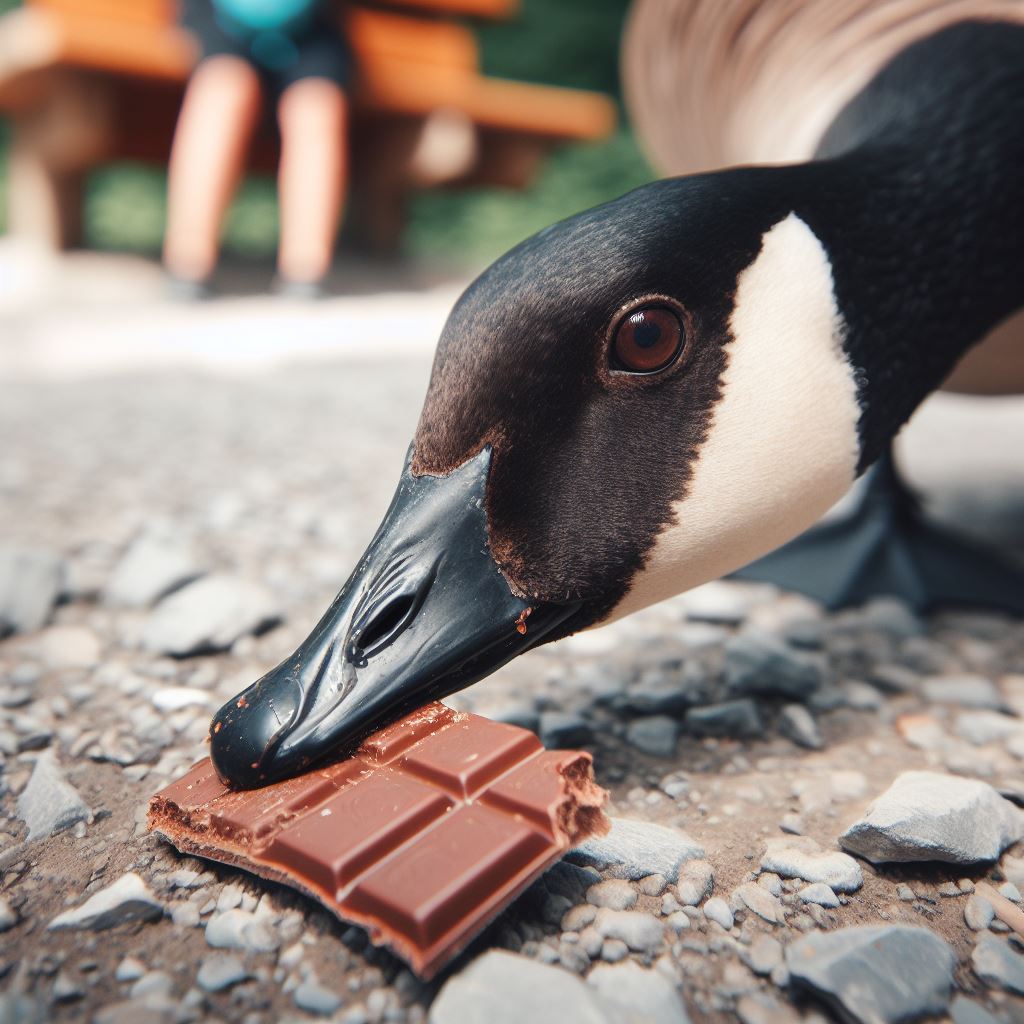 Chocolate’s Effects on Geese
Chocolate’s Effects on Geese
Before determining if geese can eat chocolate, it’s important to understand exactly why chocolate is harmful to them. Here’s a quick rundown:
- Chocolate contains theobromine – Theobromine is a bitter alkaloid found in cacao plants, the main ingredient in chocolate. It has stimulant effects on the body.
- Geese cannot effectively metabolize theobromine – Unlike humans who can process theobromine, geese and other birds lack the enzymes needed to properly break it down.
- Theobromine is toxic to geese – When geese ingest chocolate, the theobromine builds up in their system since they cannot metabolize it. This causes caffeine-like side effects and can lead to poisoning.
- Even small amounts can be dangerous – Due to their small size, even a few bites of chocolate can cause issues for geese. Dark chocolate is especially risky due to its higher theobromine content.
Let’s look more closely at the effects of chocolate poisoning on geese.
What Happens if Geese Eat Chocolate?
If a goose accidentally eats chocolate, either milk chocolate, dark chocolate, or cocoa powder, you may start to notice some concerning symptoms that indicate theobromine poisoning:
- Increased heart rate – Theobromine is a cardiac stimulant, so one of the first signs will be an abnormally fast heart rate.
- Hyperactivity – Due to the caffeine-like effects, the goose may seem overly energetic, restless, fidgety, and excitable.
- Gastrointestinal issues – Symptoms like diarrhea, vomiting, and lack of appetite can occur as the chocolate passes through the digestive tract.
- Tremors and seizures – The goose may have shaky movements, tremors, or seizures from the theobromine overdose.
- Difficulty breathing – Rapid breathing, coughing, breathing with an open beak, and bluish skin/beak point to respiratory distress.
- Disorientation – The goose may act confused, unstable on its feet, pass out, or be unable to walk properly.
The severity of chocolate poisoning depends on the amount ingested. Even small amounts can make a goose ill, but large quantities can be lethal without swift treatment. Call your vet immediately if your goose eats more than a bite or two of chocolate.
What to Do If Your Goose Eats Chocolate
If you catch your goose nibbling on chocolate or suspect it swallowed some, take action right away:
- Determine approximately how much chocolate was consumed – The amount will impact treatment. Inspect the area for leftover chocolate.
- Contact your avian vet or emergency animal clinic – Advise them that your goose ate chocolate so they can recommend proper treatment.
- Monitor your goose closely – Watch for symptoms of theobromine poisoning. Note the time chocolate was ingested.
- Induce vomiting if advised by your vet – Your vet may have you gently administer hydrogen peroxide to make your goose vomit the chocolate.
- Bring the goose in for care – If symptoms appear serious, transfer the goose to the vet clinic for observation and supportive treatment.
- Possible treatments may include: – Medications to control heart rate and tremors, observation period. Treatment depends on the amount eaten and symptoms shown.
With timely vet care, many geese recover fully after eating small amounts of chocolate. But avoid giving chocolate in the future since repeat exposure can be dangerous.
Foods Geese Should Not Eat
It’s important to be aware of other human foods that can harm geese in addition to chocolate:
| Food | Why It’s Harmful |
|---|---|
| Avocados | Contain persin, a fungicidal toxin |
| Caffeine | Similar effects as chocolate/theobromine |
| Alcohol | Can cause alcohol poisoning |
| Onions/Garlic | Can cause anemia |
| Salty foods | Excess sodium is harmful |
| Xylitol (artificial sweetener) | Can cause dangerous blood sugar and liver issues |
Stick to healthy, natural foods tailored to geese for a balanced diet. Consult your vet if ever unsure about a particular food.
Conclusion
Chocolate is toxic to geese due to its theobromine content which causes caffeine-like side effects and can lead to poisoning. Even small amounts can make geese ill. Symptoms of theobromine poisoning include increased heart rate, hyperactivity, gastrointestinal issues, tremors, breathing problems, and disorientation.
If your goose accidentally consumes chocolate, contact your vet immediately for treatment recommendations. You may need to induce vomiting and/or bring your goose in for medical care and monitoring. With quick action, many geese recover after eating small amounts of chocolate.
Avoid feeding geese chocolate, caffeine, avocados, salty foods, onions, garlic, alcohol, and other human foods. Chocolate and caffeine especially should be kept far away from geese at all times. Focus on a healthy balanced diet with goose feed, birdseed, greens, fruits, and veggies.
By understanding which foods geese can and cannot safely eat, goose owners can help protect their birds and keep them living happy, healthy lives for years to come.
Welcome. I’m Adreena Shanum, the proud owner of this website, and I am incredibly passionate about animals, especially poultry. I founded adreenapets.com as a labor of love, stemming from my desire to share my knowledge and experiences with poultry enthusiasts worldwide.

